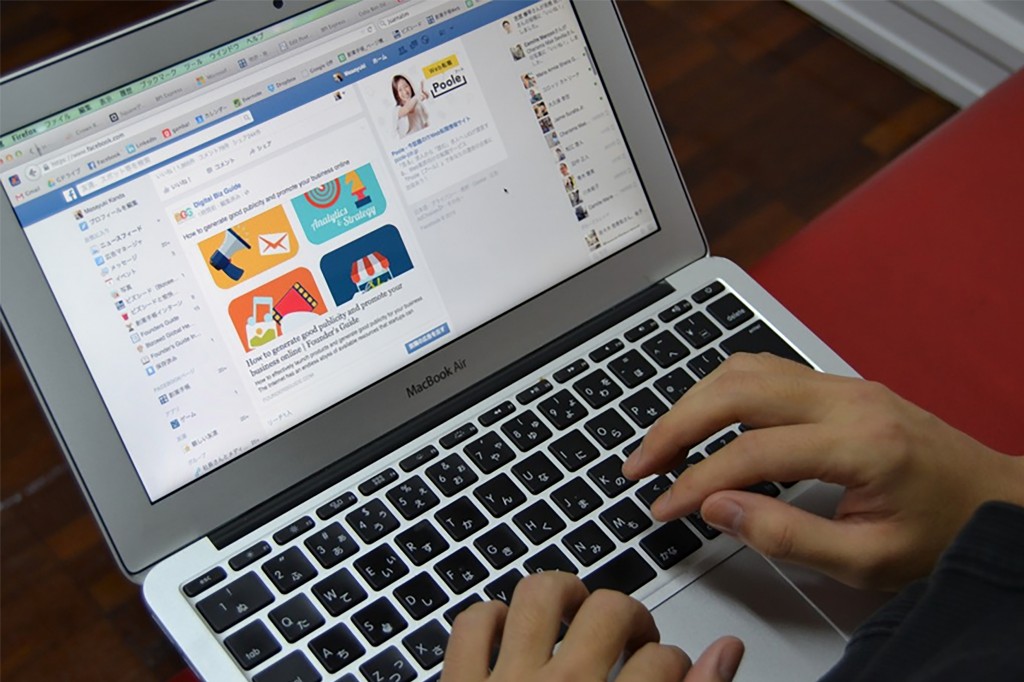A Case Study in Overcoming Japan’s Cultural Barriers to Entry

For many American entrepreneurs, international expansion represents an important step towards long-term sustainable growth. The American economy, as large as it may be, is limited in size and declining as a percentage of global GDP.
Global expansion can nevertheless be fraught with difficulty. Cultural barriers in particular can complicate successful entry into a foreign market: a product or messaging tactic appealing to Americans initially may not suit local preferences.
Addressing this problem can be difficult as every country has its own distinct culture, which limits the generalizability of any solution.
It is nonetheless instructive to consider specific cases in which an American startup has overcome foreign cultural obstacles, from which we can draw certain conclusions.
Facebook takes on Mixi and Japan
Facebook’s entry into Japan represents one such case. America’s premier social networking service (SNS) made the leap across the Pacific in 2008, when it was four years old, by launching a Japanese-language version of its website.
It initially made little progress in winning over users, largely due to perceived cultural barriers and fierce competition from established local SNS platforms.
Foremost among these competitors was Mixi, which in 2008 had a near monopoly over Japanese social media. Mixi differs significantly from Facebook in that profiles are created anonymously. Users thus do not know the identity of those they interact with, which is thought to reflect Japanese’ preference for privacy and avoidance of conspicuity.
Research also suggests that Facebook, with its aggressive prompts for action and frequent notifications, meshes well with American culture while Mixi more subtly encourages user interaction, which reflects Japanese culture. Indeed, Mixi’s president Kenji Kasahara once dismissed Facebook’s potential in Japan claiming it, “stressed openness over privacy and doesn’t reflect regional characteristics”
For these reasons, Facebook struggled to capture Japanese users in the initial years following its introduction.
2011 breakthrough
In spite of these early challenges, Facebook’s popularity exploded in 2011. It experienced phenomenal user growth at the expense of Mixi, which subsequently saw a collapse in its share price.

From February 2011 to February 2012, Facebook’s user base in Japan more than doubled from 6 million to 13.5 million and stood at more than 33.8 million by December 2014 (total only accounts for users of the mobile app). It is now firmly entrenched as the most popular SNS in Japan while Mixi ranks seventh in popularity.
What accounts for this phenomenal growth? Three catalysts are of particular importance.
Media attention
First, the network attracted growing domestic media attention. The US is both the world’s premier trendsetter and innovative engine. As a result, hot trends in the US often attract a certain amount of attention in other countries.
This attention was complemented by the 2011 Japan debut of Social Network, which further heightened awareness of Facebook and lent a cool, creative aura to founder Mark Zuckerberg. The movie earned 14.2 billion yen in Japan
Use for business purposes
Many Japanese have adopted Facebook as a tool for business communications. Facebook’s interface and use of real names allows for a platform in which users can effectively develop real-life relationships. Bloomberg quotes one user as claiming, “the real-name policy makes the site a good place to cultivate relationships with would-be partners” before adding, “it’s useful because they will remember me after I comment on their posts”.
Moreover, Japanese companies have increasingly turned to Facebook as a means of reaching possible consumers.
Recognition of Facebook’s potential for business and commercial purposes represents another factor behind its booming success.
March 11 Catalyst
Perhaps more than anything else, the March 11, 2011 Tohoku earthquake and tsunami generated adequate momentum for sustained growth. Following the disaster, Google searches of Facebook more than quadrupled compared to a year earlier and membership increased exponentially as evidenced by the 2011 user data.
Use of real names and the ease with which users can share news and personal information on a wide level contributed immensely to its rise in popularity. The popular messaging system LINE similarly expanded its user base in the aftermath of the Tohoku tragedy.
The chaos surrounding the disaster exposed certain inadequacies in Japanese’ method of communication. Beforehand they lacked a clear medium through which they could efficiently access and distribute personal information. The 3/11 incident underscored the usefulness of wide-scale circulation of personal information, in spite of pre-existing cultural stigmas.
This development more than any other entrenched Facebook’s popularity in Japan. From that point onwards, a snowball effect of sorts further propelled usage in Japan. According to a 2011 survey of 500 Japanese Facebook users, 41.4% of users stated they began using Facebook on the recommendation of a friend. A further 22.4% started using it because it became a topic of conversation.
This survey was not conducted scientifically so it should be taken with a grain of salt. It nevertheless offers some insight as to how Facebook took root in Japan. The breakdown of why users began using Facebook suggests that once many started using the service, they were satisfied enough to recommend it to friends.
Takeaways for entrepreneurs
Facebook is a prime example of an American product that overcame initial cultural barriers to entry overseas. Admittedly, part of this success must be attributed to fortuitous circumstances: without the Tohoku disaster, it is unclear if or when Facebook would have taken off in Japan. It’s also unclear whether or not Facebook’s marketing techniques contributed to its popularity. With this in mind, lessons learned from Facebook’s success are limited in scope.
However, we can draw one important conclusion: cultural norms are malleable and often evolve in response to innovation. Japanese wary of publicly identifying themselves through social media initially embraced Mixi, which conformed to status quo cultural preferences. But when they experimented with Facebook, they realized that it offered benefits they previously failed to recognize.
Cultural gaps, while undoubtedly a barrier to entry, should also be considered an opportunity. Does your company’s product improve the lives of consumers? Does it offer something fresh, exciting and unprecedented? Can you envision a feasible path to growth in the target market? If so, then your company stands a chance of prospering beyond borders.







